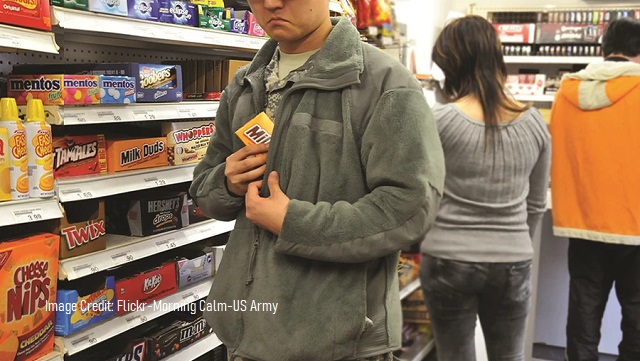Here’s Why San Francisco is Experiencing a Shoplifting Surge That’s Putting Some Stores Out of Business

It doesn’t take a genius to figure out what’s going on here.
“I’m new to San Francisco,” New York Times journalist Thomas Fuller told a grocery store clerk shortly after moving to the city. “Is it optional to pay for things here?”
It sounds like an absurd thing to ask, but Fuller explains in a new article that he was genuinely forced to wonder what was going on after he witnessed people walk into Walgreens and Safeway, grab stuff, and walk out. He says that the problem has only gotten worse in recent years—and is now literally forcing businesses to close their doors.
“Representatives from Walgreens said that thefts at its stores in San Francisco were four times the chain’s national average, and that it had closed 17 stores, largely because the scale of thefts had made business untenable,” Fuller reports. Meanwhile, CVS told him that San Francisco had become “one of the epicenters of organized retail crime” and that the chain has scaled back its security guards’ shoplifting enforcement because it’s become so dangerous.
You might understandably be wondering: What the heck is going on?
One of the richest cities in America is struggling with sticky fingers. https://t.co/bgliOnHFp1
— NYT National News (@NYTNational) May 21, 2021
In 2014, a ballot referendum passed that downgraded the theft of property less than $950 in value from a felony charge to a misdemeanor. In the years since, enforcement of shoplifting charges has waned significantly.
“It has become part of the landscape,” local politician Ahsha Safaí remarked of the shoplifting. “People say, ‘Oh, well, that just happens. [Thieves] are obviously choosing locales based on what the consequences are. there are no consequences for their actions, then you invite the behavior. Over and over.”
It’s not just based on anecdotes and it’s not just happening in San Francisco.
One study found that in Santa Monica, California, crimes unaffected by the ballot referendum fell by 9 percent but those that were downgraded increased 15 percent. Another analysis found that statewide, larceny thefts increased 9 percent after the 2014 change.
It doesn’t take a genius to figure out what’s going on here. Many different factors impact crime rates, but when the government fails to protect property rights and enforce the law, theft becomes more common and innocent business owners are victimized. The resulting economic uncertainty discourages growth and, in extreme cases like San Francisco, literally leads stores to close.
Protecting property and enforcing the rule of law is one of the core, legitimate functions of government. That the Golden State has chosen to focus its government’s robust spending and involvement in social life elsewhere speaks to a grave misalignment in priorities.
COLUMN BY
Brad Polumbo
Brad Polumbo (@Brad_Polumbo) is a libertarian-conservative journalist and Policy Correspondent at the Foundation for Economic Education.
EDITORS NOTE: This FEE column is republished with permission. All rights reserved. Like this story? Click here to sign up for the FEE Daily and get free-market news and analysis like this from Policy Correspondent Brad Polumbo in your inbox every weekday.


Leave a Reply
Want to join the discussion?Feel free to contribute!